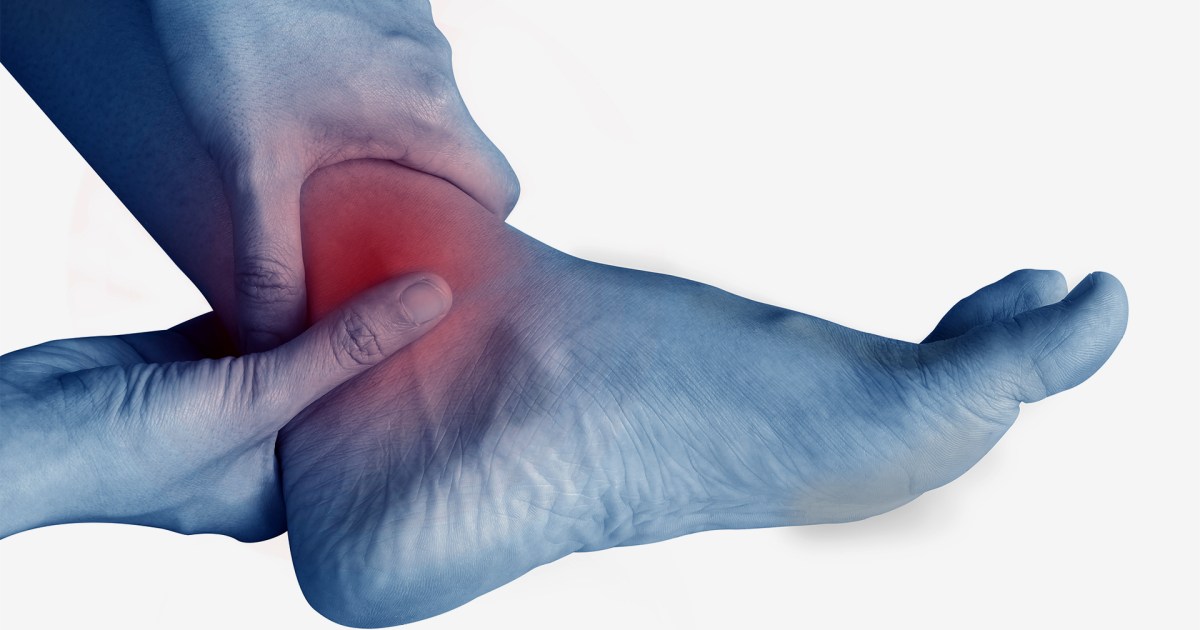Swelling in the ankles or feet is often not a serious symptom, but it can also be a sign of a serious illness.
What are the possible reasons behind this offer?
And how can it be mitigated?
Many people may experience swollen ankles or feet, but this symptom is usually harmless.
Swollen ankles often result from lack of movement during the day, for example after standing or sitting for a long time.
This may also happen to some extent in warm weather or with wearing uncomfortable shoes, but the body can send warning signals when there are serious diseases, in the form of swelling in the ankles or feet, according to what the Deutsche Welle website quoted from the German medical site “Netdoktor”, which Give a presentation on the causes and methods of treating swollen ankles or feet.
Causes of swollen ankles or feet
Injuries or infections
Injuries (often sprains or fractures) and inflammation can increase the permeability of blood vessels, and this makes it easier for water to build up in surrounding tissues and for ankles to swell.
Weight gain or intense physical activity
Extreme weight gain (obesity) or intense physical activity can impede the return of blood flow to the heart and the accumulation of blood, as well as the excess fat cells in the body cause more water to leak into the surrounding tissues, then the lymphatic system is overloaded and cannot Move the liquid away.
Pregnancy and hormonal changes
Hormonal changes such as pregnancy often lead to swelling and pain in the legs and feet.
The reason for this is that the body stores more fluid and this moves from the vessels to the surrounding tissues.
blood clot
If you notice only one ankle swollen, this could be a sign of a blood clot blocking the veins. The accompanying symptoms are usually pain, mild fever, and discoloration of the skin.
In such a case, an emergency must be called immediately.
heart disease
In some cases, swollen feet is a side effect of a serious illness.
In the case of bilateral ankle swelling, there can be chronic heart failure, more precisely what is known as right heart failure.
Kidney or liver disease, such as advanced cirrhosis, can also cause swollen legs and feet.
pharmaceutical
Ankle swelling can be a side effect of some medications.
These medications include antidepressants, antihypertensives, corticosteroids, and anti-inflammatories.
Dealing with swollen ankles
If swelling occurs in one ankle or foot, you may have a stroke, call 911 immediately.
If your ankle swells only from prolonged standing or from a high temperature, you can use simple home remedies.
In general, it is always a good idea to put your feet up.
Cooling may also help, as cold constricts blood vessels, which in turn encourages blood to return from the legs, and a foot bath with soothing ingredients may be helpful.
Wearing support stockings can prevent swollen ankles, especially if you have venous insufficiency.
If your feet continue to swell with other symptoms such as fever or shortness of breath, call 911.

